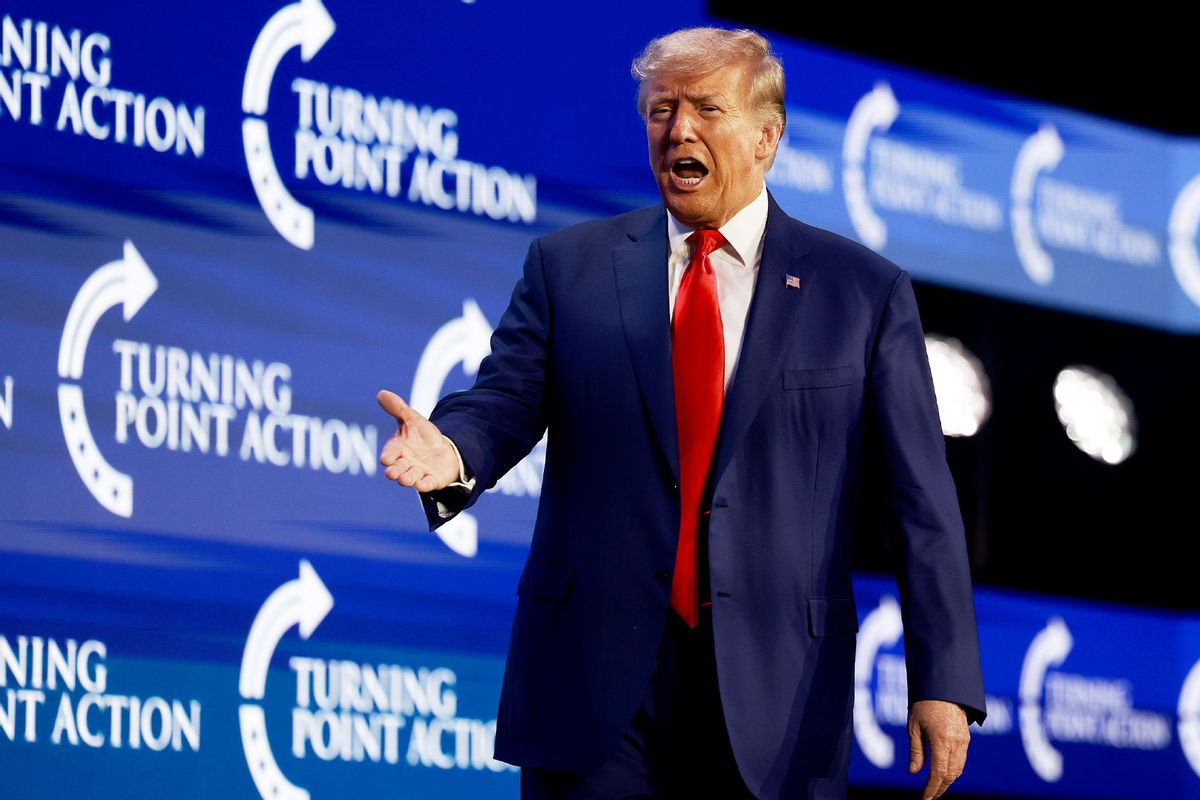Former President Donald Trump was chided by legal experts over the weekend for seemingly making up legislation that he stated had authorized him to take national security documents home to his Mar-a-Lago estate in Florida.
During a speech at the Turning Point Action conference in West Palm Beach on Saturday, Trump complained about his classified documents indictment and claimed, "whatever documents a president decides to take with him, he has the absolute and unquestioned right to do so."
"This was a law that was passed and signed," he added. "And it couldn't be more clear."
Legal experts quickly rejected Trump's claim.
"Nope. No such law exists. Period." wrote longtime Harvard legal scholar Laurence Tribe.
National security lawyer Bradley Moss tweeted that Trump's claim was "not a legitimate legal argument," but rather a "political talking point."
"It'll fail in court," he predicted.
"Say you've never read the Presidential Records Act without saying you've never read the Presidential Records Act," wrote former CIA analyst Gail Helt.
"No such law exists. Generally, laws granting rulers 'absolute' power aren't a thing in U.S," journalist Jeff Sharlet tweeted,
HuffPost reported that Trump's latest assertion is only the latest in a number of erroneous statements made in the past about what a sitting president is allowed to do. Last month, for example, in referring to the National Archives and Records Administration, he argued that he maintained the "absolute right to keep [documents] or he can give them back to NARA if he wants."
Legal experts were quick to quash the ex-president's claim, refuting his defense as "ludicrous."
Want a daily wrap-up of all the news and commentary Salon has to offer? Subscribe to our morning newsletter, Crash Course.
Trump has tried to argue that the Presidential Records Act, which governs the handling of presidential records, is a defense against charges that he violated the Espionage Act by mishandling national security information.
"Trump isn't charged with any violations of the Presidential Records Act," former Assistant U.S. Attorney William "Widge" Devaney told Salon last month. "Trump is charged with having secret and top secret information, refusing to turn it over, obstructing the government's attempts to turn it over and causing people to lie about those records. I mean, it's really apples and oranges."
Read more
about the Mar-a-Lago case



Shares